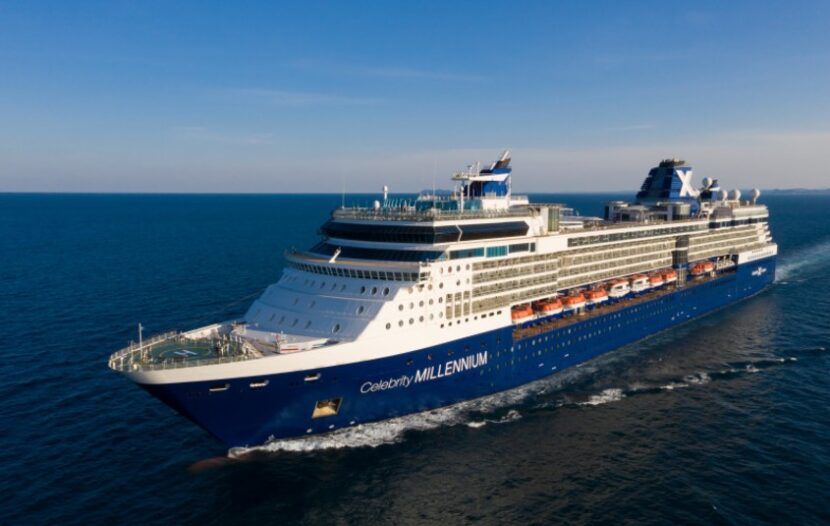TORONTO — The two passengers on the Celebrity Millennium who recently tested positive for COVID-19 did everything right.
As required by Celebrity Cruises, they got their vaccine shots at least 14 days prior to sailing, tested negative for COVID-19 within 72 hours of the cruise, and completed the mandatory health questionnaire prior to boarding the ship. When the Millennium departed St. Maarten on June 5 for a seven-night Caribbean cruise – Celebrity’s first since the start of the pandemic – it carried with it the hope of an entire industry that has been desperate to prove that it is, indeed, possible to cruise safely amid the pandemic.
But then the two passengers – who shared a stateroom onboard – tested positive for COVID-19 during end-of-cruise testing, despite being fully vaccinated. Both were asymptomatic and were immediately put in isolation for the remainder of the cruise, during which they were closely monitored by the ship’s medical team. Celebrity also retested the passengers’ close contacts, all of whom tested negative.
Luckily for the two passengers, their positive results came back towards the end of the cruise, when they already had the chance to fully enjoy the ship’s many amenities and visit port stops in Barbados, Aruba and Curacao. But what would’ve happened had they tested positive at the start or halfway point of the cruise? Considering they passed all the required checkpoints with flying colours and presumably adhered to all regulations, would they have been compensated for the portion of the cruise that was spent in isolation?
Travelweek reached out to Celebrity Cruises for comment but did not hear back, as well as parent company Royal Caribbean Group, which declined to comment.
Travelweek then contacted CLIA’s Laziza Lambert, Director, Strategic Communications and Public Affairs, who said that commercial matters such as refunds and credits are outside of CLIA’s purview as a trade association representing the entirety of the cruise community.
“However, what I can tell you is that scenarios such as this one further validate the industry’s approach, which incorporates preventative as well as response measures. Both are equally important and necessary, regardless of vaccination status,” she said.
“Protocols have been designed with the input of scientists and medical experts and include routine testing for both passengers and crew, which is how cases are identified and response procedures activated when necessary,” she added. “When executed according to plan, these procedures are designed to both care for affected passengers as well as limit spread amongst others onboard.”
Marianne Vogel, CTC and owner of Just for You Travel & Consulting in Dundas, Ontario, tells Travelweek that Celebrity should not be considered at fault if fully vaccinated passengers test positive during a cruise, “but being Celebrity, they will probably offer a goodwill gesture of some sort plus free medical care.”
As an avid cruiser herself, Vogel says that if it were her, she would not expect any sort of compensation or reimbursement from the cruise line.
“It is the passenger’s responsibility to prove they are negative and have the vaccinations before being allowed onboard,” she says. “I doubt these passengers got it on the cruise as they were both in the same cabin. So my guess is they picked it up somewhere else, off the ship. Being vaccinated does not make you invincible, you still have to take precautions. Everyone needs to carry COVID-19 insurance right now, I just hope these passengers had that.”
With Celebrity being the first cruise line to report cases of COVID-19 onboard among fully vaccinated passengers, it can be safely assumed that this situation will occur on other cruise lines as they start to resume operations following a more-than-year-long hiatus due to the pandemic. So should cruise lines and travel agents be doing more to inform fully-vaccinated clients that contracting the virus is still a possibility, and that they would then be isolated while onboard?
Lambert says this shouldn’t come as a surprise to cruise guests since the medical community has been clear all along that there is no such thing as a vaccine that’s 100% effective.
“This is, in part, why the cruise industry invested so much planning and research into developing effective response measures, in addition to preventative measures – they work hand-in-hand,” she says, noting that since last summer more than 550,000 passengers have sailed onboard CLIA ocean-going member cruise ships, with an incidence rate that is far lower than on land. “According to our research, cruisers are highly supportive of these measures, with 80% of cruisers saying they are confident in the protocols promoting a healthy and safe environment.”
Vogel, who thinks Celebrity did everything it could have done in its due diligence to protect its guests and crew onboard, says that travel agents should be encouraging clients to get vaccinated and reminding them that even if fully vaccinated and with strict health and safety protocols in place, there’s still a risk of getting the virus.
“I know I would be very reluctant to book someone who was not fully vaccinated and I would have to make them sign a waiver saying they fully understood that I had relayed these rulings to them and that I was not responsible for anything that happened as a result,” says Vogel. “I also give everyone the most up-to-date rules and regulations of the countries they are visiting, as well as rules at the airport, plane and cruise ships.”
When asked whether the risk of still contracting COVID-19 despite being fully vaccinated will deter her cruise clients from booking, Vogel says a few may rethink their plans but those with “common sense” will still happily sail.
“I have some cruise bookings already for 2022 and others looking at cruising for their honeymoon next year. I also have a few that refuse to get vaccinated,” she says. “Most people realize that they still run the risk – albeit a small one – of getting COVID-19 when fully vaccinated.”

